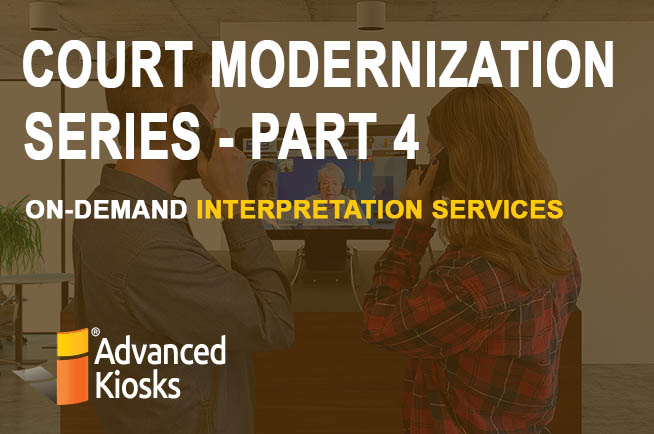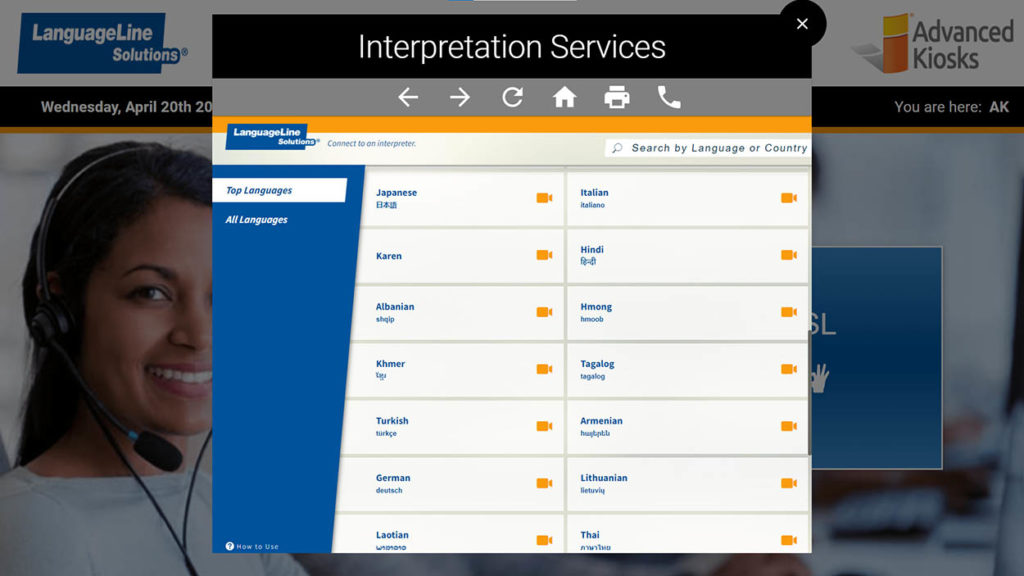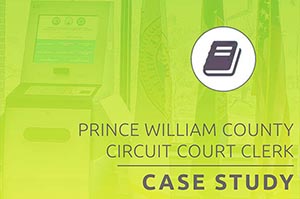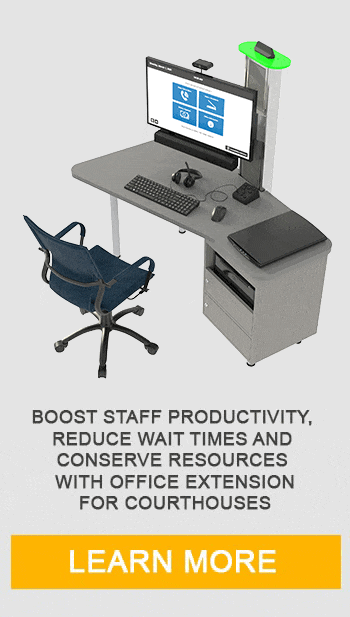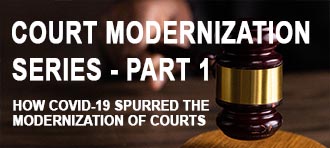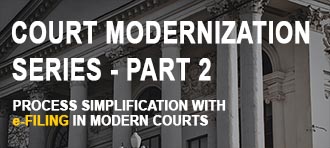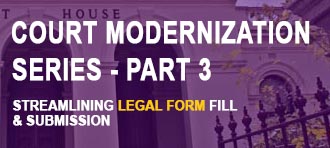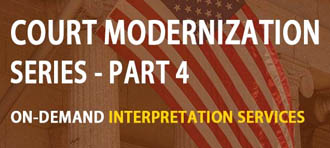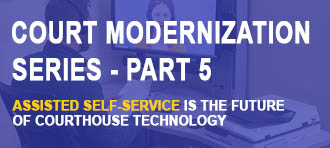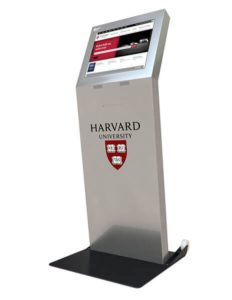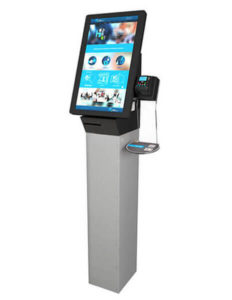The court system in the United States is undergoing dramatic changes as part of an effort to cut costs, reduce face-to-face contact and provide more efficient services.
To help explain those changes and outline ways to spur courthouse modernization, Advanced Kiosks is producing a series looking at the challenges of courthouse modernization and how implementing self-service kiosks can help address those challenges.
Although English is the most common language spoken in the United States, it’s not the only one. According to World Atlas, nearly 38 million people speak Spanish as their primary language at home, and nearly 3 million speak one of several Chinese dialects. Other languages in common use include Tagalog, Vietnamese, German, and Portuguese. Additionally, as many as 500,000 people in the country rely on American Sign Language to communicate.
 In fact, there are hundreds of languages spoken regularly in the United States. And although many of those individuals can also speak English, the U.S. Census Bureau estimates that 8.3% of the U.S. population, or nearly 28 million people, rate their ability to speak it as less than “very well.” In some parts of the country, more than 32% of the local population has difficulty speaking and understanding English.
In fact, there are hundreds of languages spoken regularly in the United States. And although many of those individuals can also speak English, the U.S. Census Bureau estimates that 8.3% of the U.S. population, or nearly 28 million people, rate their ability to speak it as less than “very well.” In some parts of the country, more than 32% of the local population has difficulty speaking and understanding English.
That can be a significant challenge for U.S. courts. Under the provisions of Title VI of the Civil Rights Act of 1964, if someone involved in a civil or criminal case has limited proficiency in English, state courts that receive federal funding are required to provide an interpreter free of charge. The same rules apply in federal courts.
At the same time, courts are under increasing budgetary pressures, in part due to the impact of COVID-19 on tax revenues. In Orange County, Calif., according to LawFirms.com, budget cuts over the past 3-6 years have forced attorneys and litigants to endure delays in obtaining a hearing or trial date. Access to court resources such as court reporters, custody mediators, and evaluators continues to be reduced.
Providing interpretation services can be costly as well, especially if the language at issue is one where it’s difficult to find a qualified interpreter. According to the Bureau of Labor Statistics, the 2021 median pay for interpreters topped $23.61 per hour. The cost can be significantly higher if the interpreter needs to travel a long distance.
There has to be a better way.
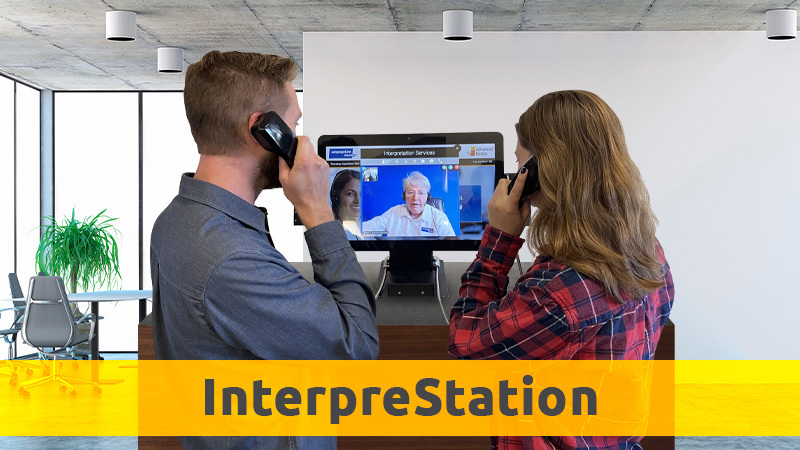
Equal access to justice
To address issues in providing interpreting services, many courts are turning to technology as part of their modernization efforts.
In Florida, for example, courts are exploring the use of remote interpreting systems to help control the costs of providing those services. The state continues to experience significant growth in its non-English speaking population, according to the Florida Courts website, with many cases and other matters involving parties or witnesses who have limited English proficiency.
One solution to providing remote interpretation and translation services to those who struggle with English is the InterpreStation from Advanced Kiosks.
The InterpreStation allows citizens who do not speak English as a first language to ask complex questions and receive answers instantly through a human translator, at a fraction of the cost of hiring an interpreter. By leveraging the services of LanguageLine Solutions, the kiosk offers interpretation and translation services in 240 languages plus American Sign Language, with weekly usage reports and personal information security.
The countertop kiosk features a built-in webcam and a 4K monitor large enough to capture details including facial expressions and hand gestures. The system includes two VOIP handsets for crisp, clear audio communication.
InterpreStation is an excellent fit for any situation where regular clients may not speak English. Along with courthouses, hospitals, government facilities, universities, and housing authorities are all industries that can benefit from the InterpreStation solution. The service is available 24 hours a day, seven days a week, and users can pay by the minute for substantial savings.
Click here to learn more!
Advanced Kiosks has for nearly 20 years been a leader in developing self-service solutions for many areas where we conduct business, and courthouses are no exception.
Our products make it easy for citizens to check in to appointments with probation officers, file legal documents, apply for permits and perform a host of other court-related functions.
Contact us today to see how we can assist in your courthouse modernization efforts.

